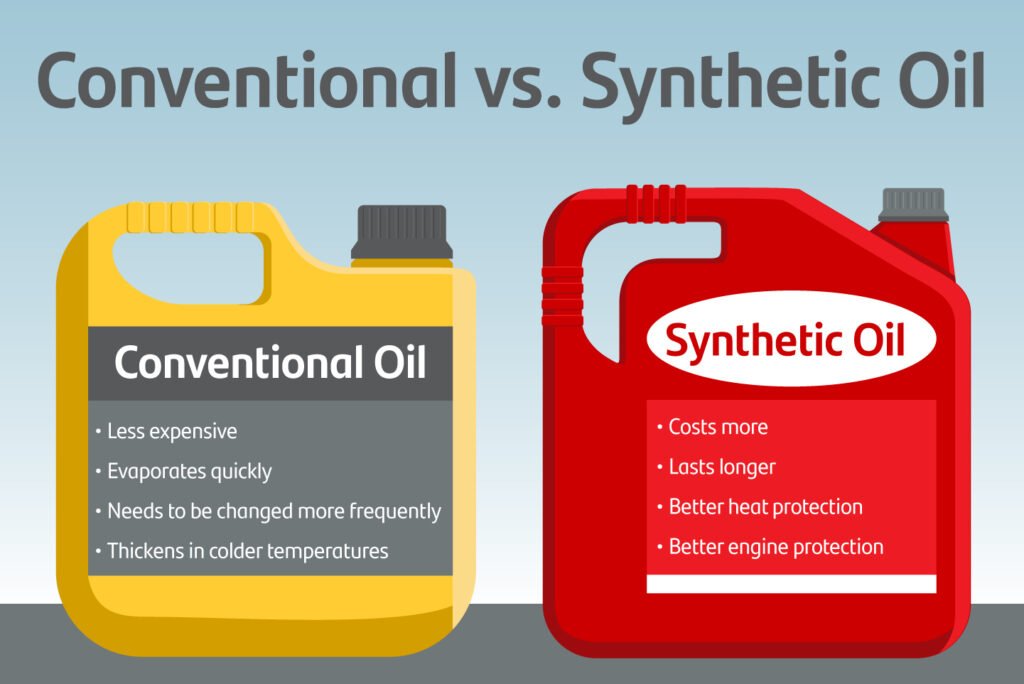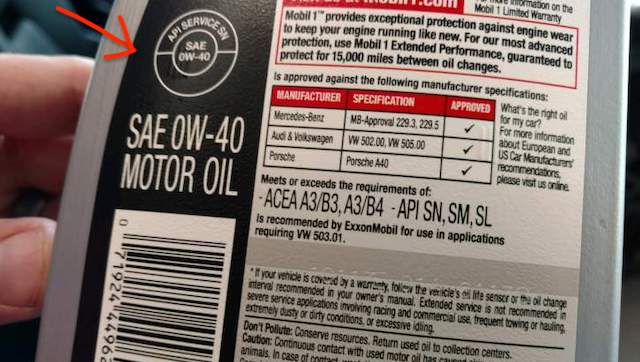Is Synthetic Oil Better Than Regular Oil? Discover the Ultimate Engine Performance!
Synthetic oil is better than regular oil for your engine, as it provides superior performance and protection. While conventional oil can offer adequate lubrication, it falls short compared to the overall benefits of synthetic oil. Synthetic oil flows more smoothly, withstands extreme temperatures better, and is resistant to oxidation and chemical degradation. Although it is slightly more expensive, it offers advantages such as improved fuel economy, especially in cold temperatures. When considering oil options for your engine, synthetic oil outperforms regular oil in terms of performance and longevity. Understanding The Differences When it comes to choosing the right oil for your engine, you may have come across the debate between synthetic oil and regular oil. Understanding the differences between these two options is essential in making an informed decision that will benefit your engine’s performance and longevity. In this section, we will compare synthetic oil and regular oil, highlighting their key characteristics. Synthetic Oil Vs. Regular Oil: What Sets Them Apart? Synthetic oil and regular oil differ primarily in their composition and the way they are manufactured. Regular oil, also known as mineral oil, is refined from crude oil extracted from the ground. On the other hand, synthetic oil is engineered in a lab, using artificially made chemical compounds. This distinction in production methods gives synthetic oil some unique performance advantages over regular oil. Key Characteristics Of Synthetic Oil Synthetic oil boasts several key characteristics that make it superior to regular oil in terms of engine performance and protection: Performance in extreme temperatures: Synthetic oil has better performance in extreme high and low temperatures compared to regular oil. It remains slippery even in cold climates, reducing engine problems during start-up. Improved lubrication: Synthetic oil provides better lubrication for engine components, reducing friction and wear. This feature ensures optimal engine performance and extends the engine’s lifespan. Longer oil change intervals: Synthetic oil generally lasts longer than regular oil before requiring an oil change. Its chemical composition resists breakdown, allowing for extended use without compromising performance. Resistance to sludge and deposits: Synthetic oil has better resistance to sludge and deposits that can accumulate within the engine over time. This helps maintain cleaner engine components and prevents performance issues. Key Characteristics Of Regular Oil While synthetic oil offers many advantages, regular oil still provides adequate lubrication for your engine. Here are some key characteristics of regular oil: Reasonable lubrication performance: Regular oil can adequately lubricate engine components, ensuring they operate smoothly and reducing friction. Cost-effective option: Regular oil is generally more affordable than synthetic oil, making it a budget-friendly choice for those who adhere to regular oil change intervals. Widely available: Regular oil is readily available in most automotive supply stores and service centers. It is compatible with a wide range of vehicles and is easy to find. Now that you have a better understanding of the differences between synthetic oil and regular oil and their key characteristics, you can make an informed decision based on your vehicle’s needs and your budget. Whether you choose synthetic oil for its superior performance or regular oil for its affordability, maintaining regular oil change intervals is crucial for keeping your engine running smoothly and ensuring its longevity. Benefits Of Synthetic Oil Synthetic oil offers several advantages over regular oil. It is more resistant to oxidation and chemical degradation, withstands temperature extremes better, and flows more easily at cold temperatures. However, it is slightly more expensive and can potentially experience additive precipitation or separation, leading to slightly lower fuel economy. Synthetic oil offers numerous benefits for your engine, surpassing the performance of regular oil. Switching to synthetic oil can enhance your engine’s performance, improve lubrication and protection, provide higher resistance to breakdown and degradation, and extended oil change intervals. Let’s explore each of these benefits in more detail. Enhanced Engine Performance With Synthetic Oil Synthetic oil is engineered to provide superior performance compared to regular oil. Its advanced formulation and synthetic base ensure that it flows smoothly and quickly throughout your engine, even in extreme temperatures. As a result, your engine experiences reduced friction, less wear and tear, and improved overall performance. With synthetic oil, you can enjoy smoother acceleration, better fuel efficiency, and increased horsepower. Improved Lubrication And Protection For Your Engine Synthetic oil offers exceptional lubrication properties, ensuring that every moving part of your engine is properly coated and protected. Its molecular structure is designed to provide a protective barrier, reducing friction and minimizing wear on critical engine components. Additionally, synthetic oil’s superior oxidative stability helps prevent harmful deposits from forming, keeping your engine clean and running smoothly for longer. Higher Resistance To Breakdown And Degradation Synthetic oil is more resistant to breakdown and degradation compared to regular oil. It retains its viscosity and lubricating properties for longer periods, even under extreme operating conditions. This resistance to breakdown ensures that your engine remains properly lubricated, reducing the risk of engine wear and damage. As a result, your engine can maintain its optimal performance and longevity. Extended Oil Change Intervals With Synthetic Oil One of the major benefits of synthetic oil is that it allows for extended oil change intervals. Its superior performance and resistance to degradation mean that you can go longer between oil changes compared to regular oil. While the specific interval may vary depending on factors such as driving conditions and manufacturer recommendations, the extended oil change intervals offered by synthetic oil can save you time and money in the long run. In summary, synthetic oil offers a range of benefits that make it a superior choice for your engine compared to regular oil. Its enhanced engine performance, improved lubrication and protection, higher resistance to breakdown, and extended oil change intervals all contribute to a healthier and more efficient engine. Consider making the switch to synthetic oil to experience these advantages firsthand. How Synthetic Oil Compares To Regular Oil Synthetic oil is a better option as it offers superior engine performance and protection compared to regular oil. It provides better lubrication performance,
Is Synthetic Oil Better Than Regular Oil? Discover the Ultimate Engine Performance! Read More »





